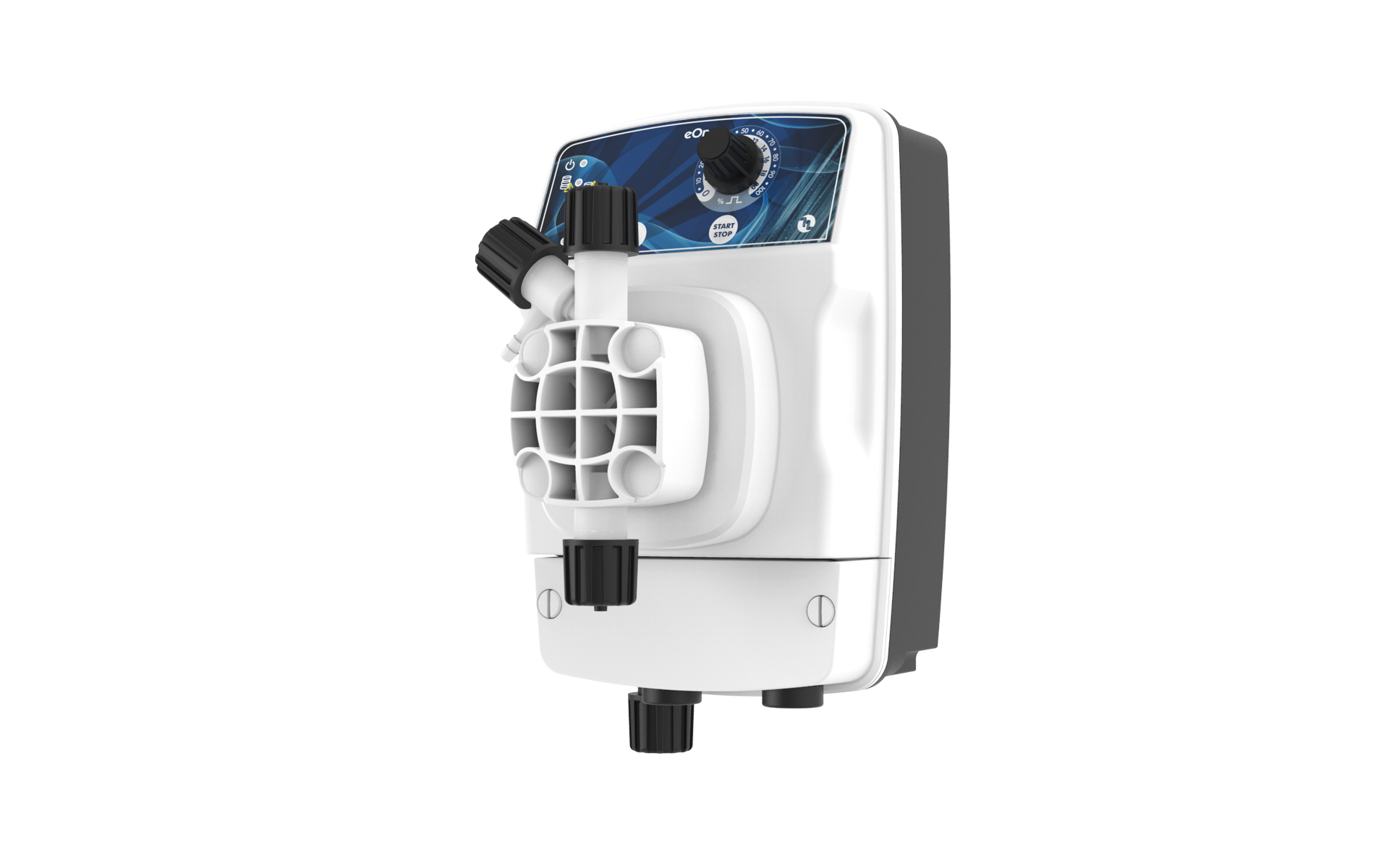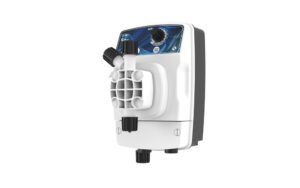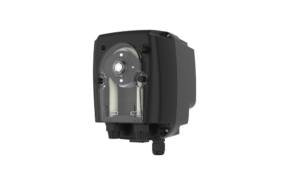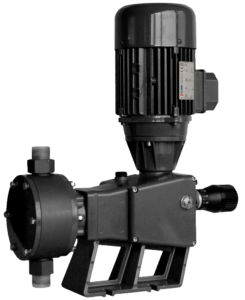Chemical Dosing & Dosing Pumps
- About Dosing Pumps
Dosing Pumps & Chemical Dosing
A dosing pump is a type of positive displacement pump whose operation is characterised by forcing liquid out of a fluid chamber with a mechanical actuator.
A dosing pump is therefore a precision instrument for accurately feeding a determined amount of liquid into a process.
Chemical dosing pumps offer repeated accuracy of operation, often in combination with sensors, to enable the pump to adjust its speed and/or stroke length in response to changing chemical conditions in the industrial process.
Ideally a dosing pump can handle a wide range of highly corrosive, volatile, or toxic chemicals. However, depending on application there is scope for economising on materials and on pump design to maximise efficiency.
Chemical dosing pumps are very commonly used by engineers in a range of industries from water treatment to process, OEM to effluent, agriculture, livestock, leisure, vehicle wash and more. Essentially, dosing procedures are adopted whenever chemical treatment is involved.

- About Dosing Pumps
Chemicals that are most frequently used in treatment include:
Sodium Hypochlorite Dosing is very effective in disinfecting and has a broad range of applications. Sodium hypochlorite is a widely used chemical, principally for its oxidising nature, anti-microbial properties, and bleaching power on materials such as textiles. Calcium Hypochlorite dosing is an alternative, supplied solely in powder form, and must therefore be mixed.
Sulphuric acid dosing is the most widely used chemical and is utilised in almost every market sector in the world. The chemical can be either clear or cloudy and is very stable and non-flammable, making it ideal for applications in a range of industries.
Ferric chloride is a widely utilised chemical in municipal water treatment works. Available in granular format or in solution, ferric chloride is a strong acid which is poisonous, corrosive but not flammable.
The majority of phosphoric acid dosing is used in the production of fertiliser, where the acid is reacted with the minerals found in phosphate rock to produce phosphate salts.
Nitric acid is a highly corrosive and toxic mineral acid that is colourless or yellow-tinged depending on decomposition of oxides of nitrogen and water parts. Nitric acid dosing is widely used for nitration and oxidisation.
The Chemical Dosing Process
A chemical dosing system can range from a simple Manual Control method or via a Dosing Control Panel Utilising Pulse Input, mA, Batch or Timer modes. A typical controller can operate the Chemical Dosing Pump with switchable relays in On/Off mode or by mA Input for proportional control. The Dosing Pump can then be set to dose to the desired amount of chemical into the process. These methods therefore allow the treatment of a process across continuously changing conditions and to accomplish a given need.
Etatron offers three types of dosing pumps: Solenoid, Peristaltic and motor driven.
View our Range of Dosing Pumps
Solenoids
Our Solenoid Dosing pumps are suitable for a range of dosing systems with multiple functions to manage the flow rate and pressure.
Peristaltics
Etatron Peristaltic Pumps are designed for use with Dosing Systems with low flow rates and pressure.
Motor Driven
These are compact and reliable Motor Driven Dosing Pumps which operate using a spring return mechanism and a high torque electric motor.
Get In Touch
If you need further information or help choosing the right Chemical Dosing Pump, Controller or Dosing System, please get in touch below!
With our excellent customer service and after-sales technical support, Etatron is always here to help you select the right dosing pump for your application.
Contact us today!



